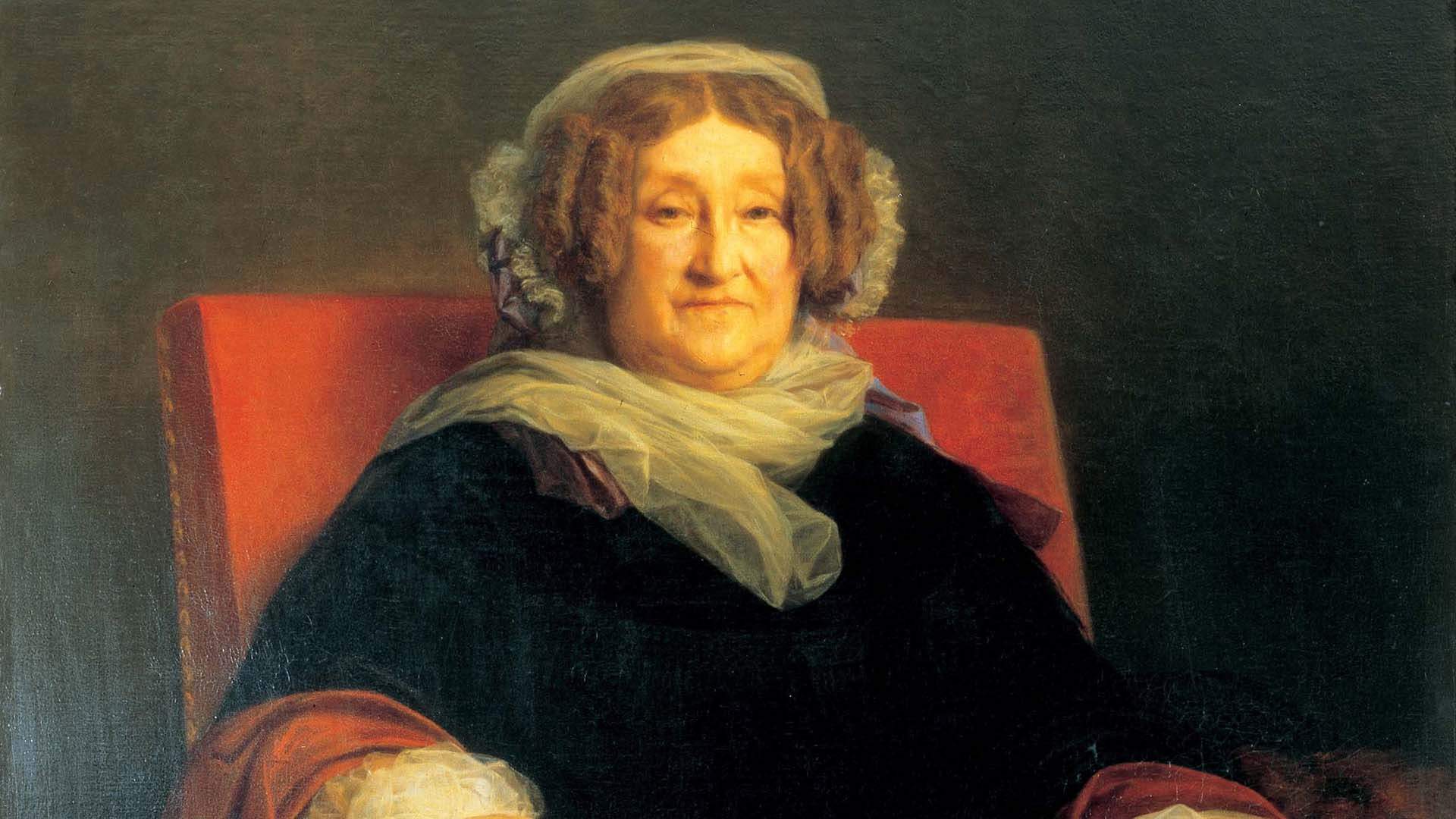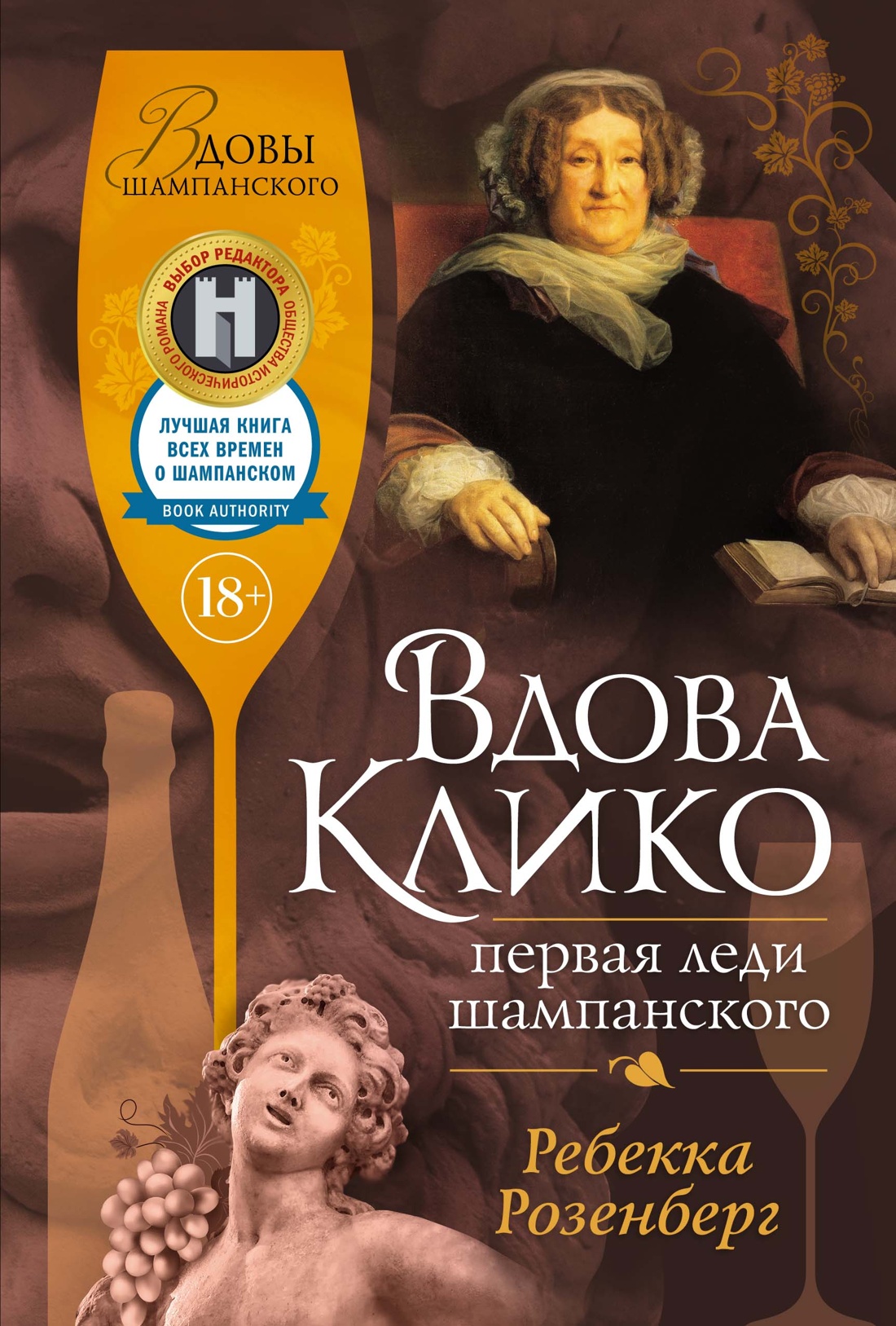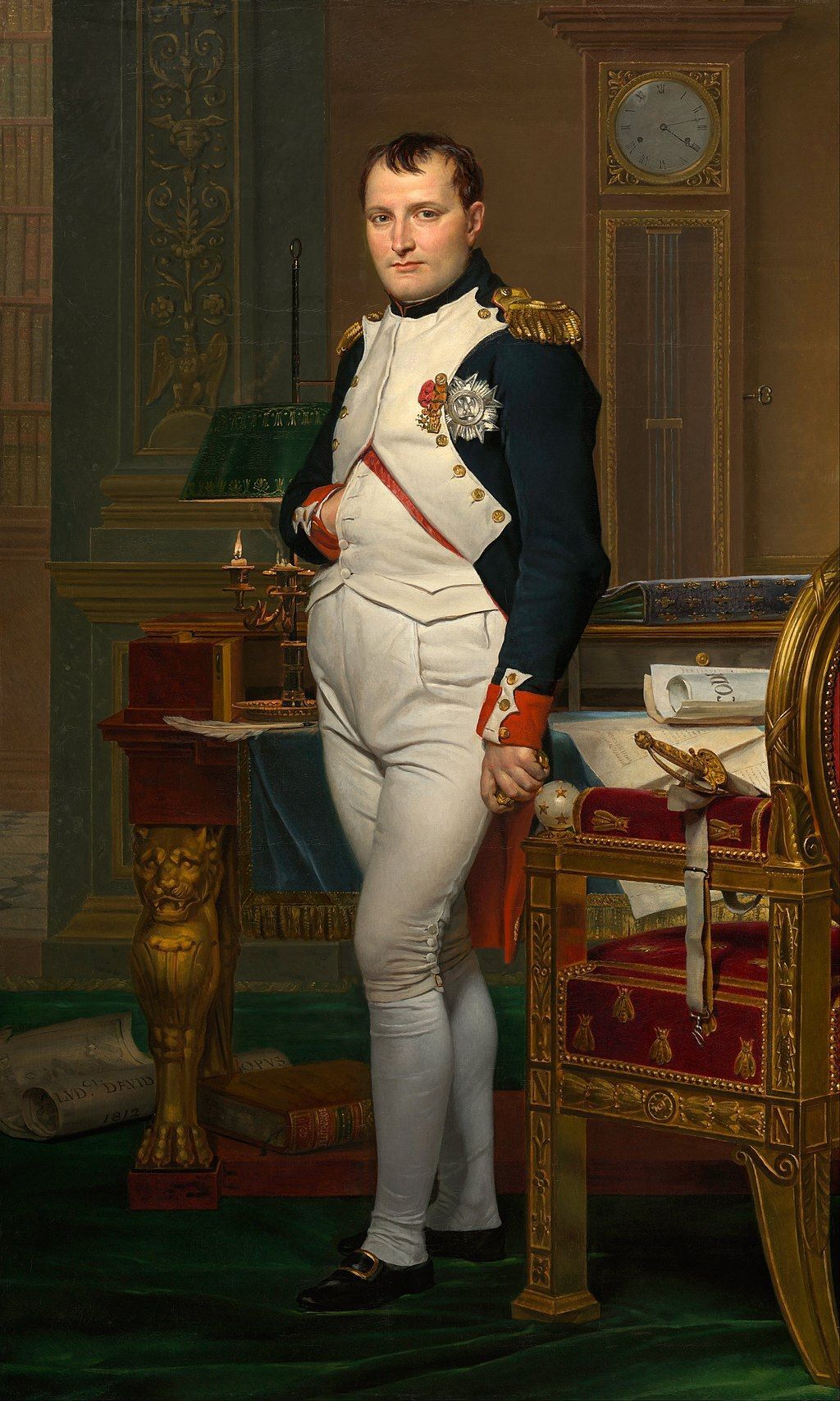The comet's wine was electrocuted: How Widow Clicquot brought Napoleon down.

French winemaking icon Barba-Nicole Clicquot-Ponsardin has experienced a surge in popularity over the past couple of years. Last summer, a biopic based on Tilar Mazzeo's book "Veuve Clicquot. The story of the wine empire and its empress", and in 2022, two writers - the Englishwoman Helen Fripp and the American Rebecca Rosenberg - as if decided to compete, who more boldly color the life of the "first lady of champagne" incredible melodramatic collisions and fantastic characters. Mrs. Fripp's work was released here almost immediately, but Mrs. Rosenberg has only now been translated into Russian, and critic Lidia Maslova presents the book of the week - especially for Izvestia.
Rebecca Rosenberg
"Widow Clicquot. The First Lady of Champagne"
М. Inostranka, Azbuka-Atticus, 2024. - Per. s Engl. I.N. Gilyarova. - 384 с.
Helen Fripp probably wins slightly in mythologizing unimaginably rich and mysterious Russia as the main market for French champagne in the late 18th and early 19th centuries. But Rebecca Rosenberg managed to more inventively build a bizarre relationship between the heroine and Napoleon (his letters to Josephine sometimes interspersed with the narrative), and in general to give the "Corsican monster" maximum infernal coloring.

In the genre definition of Rosenberg's book, labeled on the front cover as "documentary fiction", the emphasis should be placed on the second word. The fact that you are dealing mostly with fiction (more like a feature film script than a documentary) is apparent from the very first scene in the exalted first-person intonation of Barba-Nicole herself: "Grandma staggers on weak legs and nearly falls down the stone stairs into the chalk cave, our wine vault. I manage to jump up and stand between her and eternity; I am dizzy from the nauseating odor of blood caked on her headband."
This 1797 memoir immediately prefigures the professional orientation of the heroine, who receives from her grandmother the family gold tastevin that still belonged to Barba-Nicole's great-grandfather, Nicolas Ruinard, also not the last figure in the world of winemaking. "Your great-grandfather was Le Nez! The nose! A sniffer! He had a nose for all noses! And he passed this priceless gift on to you," the grandmother explains her granddaughter's heightened sensitivity to olfactory sensations, which at first seemed almost like a curse. "People would look at me with suspicion when I smelled rain coming or predicted a locust attack. I smell catastrophes that people prefer not to notice," would later be the story of the adult Barba-Nicole, whose nose suffered particularly during the Jacobin Terror: "...there was so much blood everywhere that I could only breathe through a scarf.
The leitmotif of smells coloring certain events, thoughts and emotions runs through the entire book and sometimes gives it an additional romantic dimension, and the heroine turns almost into a psychic: "Mostly I smell ordinary smells, but sometimes it seems to me as if I catch the stench of lies. Or the fragrance of a pure heart. Or the heart-wrenching odor of unfulfilled hope." Moreover, through her nose, Rosenberg rather cleverly establishes a kind of inner meaningful connection between the heroine and Napoleon, a male character no less significant than the unhappy husband of the widow-to-be, the impressionable François, or her sales agent and ardent admirer Louis Bohne (in this edition, his surname Bohne is translated as "Bonet," given the hero's German origins).
The book makes room for brief battle scenes where "the stupefying odor of gunpowder, cannonballs, buckshot, and blood excite the young general." A more subtle psychological turn the theme of smell acquires in the scene of Barbra-Nicole's acquaintance with Napoleon and his charming companion: "Napoleon barely reaches Josephine's shoulder, but radiates power and dignity. Is it in the beat of his pulse on his neck? In his penetrating gaze? No. His nostrils flare, noting everything around him-the fears, hopes, and excitement of every person he sees. Perhaps he's a super-sensitive Nose, too. Isn't that a curious coincidence?"
However, even this glimmer of some kinship does not make Napoleon more sympathetic in the eyes of the heroine, who suffers losses and stands on the brink of ruin because of his aggressive foreign policy. The widow, however, strikes back morally and economically. Advancing with his army deep into Russia, Napoleon feels increasing resentment, almost in every settlement encountering smuggled products of Madame Clicquot, stubbornly supplied to the Muscovites to circumvent Napoleonic sanctions. For illegal exports, Napoleon accuses the heroine of high treason. However, this happens in the scene where the Emperor, who has returned from Russia with nothing to eat, has a pitiful appearance ("his double-jacket is pushed to the side, his white vest is stained with blood, his double-breasted uniform is torn and covered with dirt, and three gold buttons have been lost").

He is forced to seek refuge with the same Madame Clicquot, drinking the bitterness of defeat with her first masterpiece, the 1811 "Wine of the Comet" mentioned in "Eugene Onegin." "He stares menacingly at the stars as if they were his obedient soldiers, tips the glass down his throat and throws it out the window." At this moment, Barba-Nicole's soul is a mixture of "sweet satisfaction" and gloating: she is preparing to send more champagne to Russia. The triumphant feminist subtext of this scene is easy to read: "Napoleon could never conquer Russia, but Madame Clicquot did."
Being, in fact, a ladies' novel, Rosenberg's book often gives reason to educated readers to accuse the author of historical bloopers, anachronisms and romantic fictions (like the spy-adventurous line connected with a modest maid of the Ponsardin family and Louis XVIII hiding in exile). It is quite funny that the heroine calls revolutionary France the First French Republic, as if she foresees in advance that it will not be limited to a single republic (perhaps Madame Clicquot's supernatural flair extends to the political situation as well).
And there are still questions about the wine part, too. In the production scenes, the emphasis is on the heroine's olfactory and compositional talent, which allows her to create ingenious cuvées - combinations of wines from different varieties and years: "The magic is to mix all the elements with the best result. However, the main revolutionary invention of the enterprising widow - remuage - remains behind the scenes. This key word, primarily associated with the family name Clicquot, is not even mentioned in the book, although the heroine seems to be very confident about the most acute and insoluble winemaking problem of that era - turbid sediment: "To get a clear champagne, we must let the dead yeast fall into the lees, remove it, then add a replicated mixture of liqueur, sugar and yeast to activate re-fermentation."
It is clear that such technological details seem boring and dry to the writer for her sentimental book, devoted primarily to the suffering - not only of the founder of the wine empire herself, but also of the selfless grape pickers saving the harvest from heat, frost and rain. Rosenberg describes not the theoretical aspects of oenology, but the genre scenes played out in the vineyards with much more enthusiasm and visualization: "My women workers burn fires and walk with torches through the vineyards to protect the buds from frost. I get tears in my eyes from the smoke when Lisette and I ride in the wagon and feed them hot potatoes and fire-roasted sausages to keep their hands warm. And to cheer them up, we pour them hot and spicy wine".
Fortunately, nowadays the production of champagne is not as hard as in Napoleonic times, but still there is hope that a sensitive reader of the book, raising a New Year's glass of sparkling wine, will think for a split second how much of this nectar is invested not only in women's ingenuity, but also in blood, sweat and tears.
Переведено сервисом «Яндекс Переводчик»



